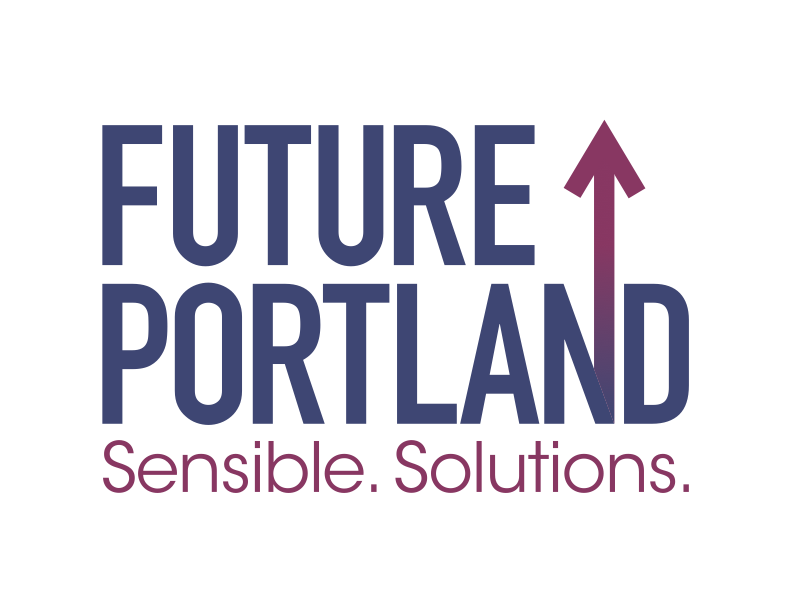Portland commissioner plans rival fix for city government as charter change battle ratchets up
A political advocacy group led by Portland Commissioner Mingus Mapps is crafting an alternative package of city government fixes to the one bound for the ballot this fall, as the battle over potential charter changes ratchets up.
Like the official ballot proposal, the alternate package would scrap Portland’s odd commission form of government and create geographic districts for individual council members to represent, according to officials with the Ulysses PAC.
Overall, the group’s leaders say, it would offer a simpler, less experimental overhaul than the proposal approved by the city’s 20-person Charter Review Commission this summer, which includes provisions not seen in many or any other cities, such as ranked-choice voting and multi-member council districts.
There’s a catch, however. The earliest any new proposal could make the local ballot is next spring.
And that’s only if voters first reject the one before them in November.
Should the current measure fail, Mapps says, he will attempt to usher a new charter reform proposal through the Portland City Council early next year. Such a referral would need only three commissioners’ yes votes to advance to the ballot.
He and others opposed to the current proposal believe that providing a potentially viable alternative prior to November could sway many voters who have reservations about the review commission’s plan but worry it’s the only shot in the near future to reconfigure City Hall.
“Portlanders should not be forced into a false choice of sticking with the status quo or going with something that’s never been attempted on planet earth,” Mapps told The Oregonian/OregonLive on Monday. “Charter reform doesn’t need to be rocket science.”
Proponents have said the commission’s pathbreaking proposal for city government overhaul would more fairly distribute power than what Mapps has in mind and offer better representation to communities that have historically lacked a seat at City Hall.
The Ulysses PAC is currently exploring proposals that would create six or seven geographic council districts with a single member elected to each and place oversight of bureaus under a professional city administrator. The mayor, elected citywide, would remain a voting member of the council. A form of ranked-choice voting is also under consideration.
That’s different than the measure that will appear on the fall ballot, which would definitely include a complex version of ranked-choice voting and have voters elect three council members from one of four geographic districts, leading to a 12-member council. The mayor would only be allowed to vote in the case of a tie.
Mapps said his group plans to publicly release a draft of its proposal by Oct. 3, a little more than two weeks before ballots begin arriving at homes.
His announcement comes days after Commissioner Dan Ryan said he will vote against the commission’s proposal, who cited what he described as the large size of the City Council and the weakened role of the mayor under the current measure as causes for concern.
“I think we’re going from the most antiquated form of government to kind of an experiment,” Ryan said during an appearance on the civic affairs program “Straight Talk with Laural Porter.”
Mayor Ted Wheeler has also indicated he’s not in favor of the measure.
In recent years, a growing chorus of politicians, business leaders and civic activists have called for reshaping Portland’s commission form of government that voters enacted in 1913, as they believe it hampers the city’s ability to respond to challenges it faces. Under that approach, individual members of the City Council, elected citywide, each run a portfolio of the city’s bureaus.
Yet that broad consensus for change quickly crumbled the after the charter commission, appointed by the City Council and designed to prioritize the views of racial and ethnic minorities, finalized its reform package in June.
One member of the commission who voted against the package, Vadim Mozyrsky, recently resigned from the group and formed his own political committee, Partnership for Common Sense Government, aimed at defeating it.
The proposal also survived a recent legal challenge by the Portland Business Alliance, which will decide this week whether to formally oppose the measure.
More than two dozen progressive organizations and social justice groups have lined up behind November’s proposed measure, including the League of Women Voters of Portland, ACLU of Oregon and Basic Rights Oregon.
“The reform measure on its way to voters will fix our lack of efficiency and representation,” said Sol Mora, campaign manager for Portland United for Change, the coalition supporting the proposal. “We cannot wait for change any longer.”
The current reform proposal would end Portland’s unique approach of having individual City Council members act as administrators over the city’s many bureaus and departments.
It would also, among other things:
- Create a new city administrator, who would be appointed by the mayor, subject to City Council approval.
- Allow the mayor to cast only tie-breaking votes and prohibit mayoral vetoes.
- Establish four districts so that council members are no longer chosen citywide.
- Have three council members elected from each district, expanding the council from five members to 12.
- Switch from holding a primary election in the spring followed by potential two-way runoffs in the fall for both mayor and council members to electing those officials through ranked-choice voting in a single fall election.
- Create a new threshold that would only require a candidate to win 25% of 1st, 2nd, 3rd and lower-ranked votes in a district to be declared a winner.
Fewer than 50 U.S. cities use ranked-choice voting. None has voters elect multiple city council members to represent a single geographic subsection of the city.

